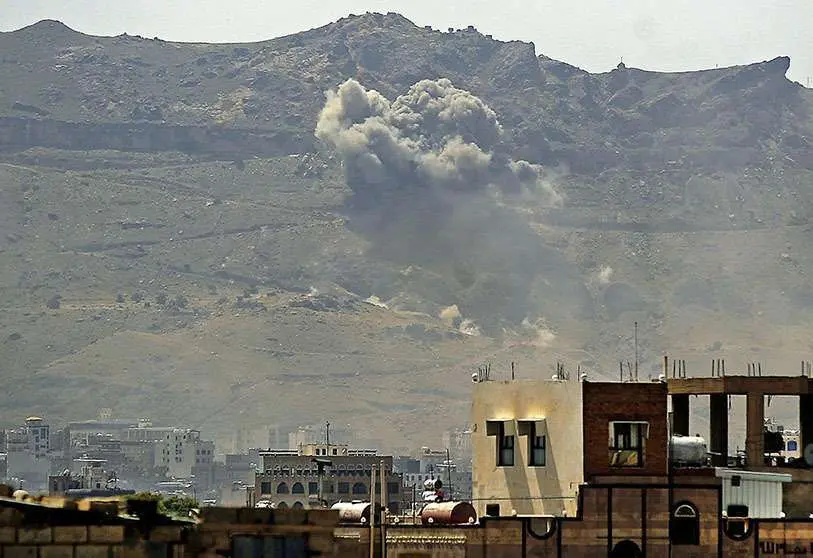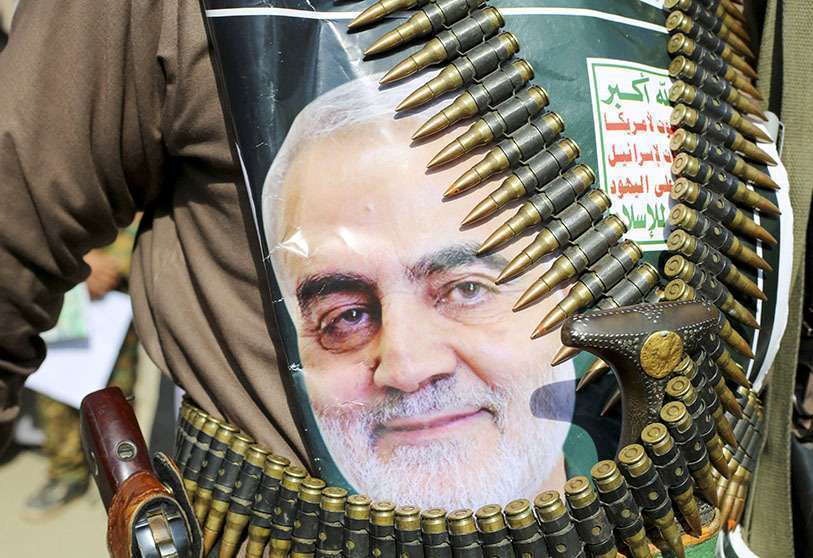Arab Coalition launches new military exercise to fight Yemeni Hutis

The Arab Coalition, led by Saudi Arabia to intervene in Yemen on behalf of the internationally recognised government, announced on Wednesday that it will launch a new military manoeuvre to combat the Hutids in Yemen. These Iranian-backed Shiite rebels have denounced the bombings that have taken place in several provinces, including the capital, Sana'a.
Saudi state television, Al Ijbariya, reported that the alliance has launched a military operation against "legitimate targets" of the Hutids aimed at taking out the "capabilities" of this pro-Iranian movement that controls large areas of northern and western Yemen, although it did not provide any further details. For its part, the Hutide-controlled Saba News agency has announced that coalition aircraft today bombed at least six Yemeni provinces, including Sana'a, on several occasions, which had been in the hands of the rebel group since 2014. Among the targets of the airstrikes on the Yemeni capital was the headquarters of the Hutuis' Ministry of Information, which was damaged, said the head of this department, Dhaif Allah al-Shami, in statements collected by the Al-Masira network, also controlled by the rebels.
The announcement of the new offensive comes a week after the pro-Iranian movement carried out a series of large-scale attacks with ballistic missiles and drones against several points in neighbouring Saudi Arabia, including the capital, Riyadh, although the coalition has indicated that it intercepted all the missiles. Hutu attacks on Saudi Arabia have been frequent since the beginning, five years ago, of the coalition's intervention in Yemen and the escalation of a conflict that began in 2014 when the pro-Iranian group took up arms against the internationally recognized Government.

The civil war, in which the Government of Abd Rabbuh Mansur al-Hadi, supported by the Arab Coalition, and the Hutu militia, with links to the Islamic Republic of Iran, are facing each other, is progressing in the country with direct clashes between the two sides. And in between, civilians, who, as always, are the most vulnerable group to the outbreak of violence.
The Yemeni government's information minister, Muammar Al-Iryani, has reported that the Hutus, like Iran, are "withholding information on the number of COVID-19 cases in areas under their control". The militia "is withholding data and information, including the number of infections, and on its lenient precautionary measures," the official warned in a statement issued by the Yemeni news agency Saba. "The number of infections and deaths in recent days indicates a disastrous level of spread of the virus, exacerbated by the lack of medical care," Arab News reported.
Yemen, where around 80% of its 30 million inhabitants need humanitarian aid to be able to satisfy some of their basic needs, is facing the worst humanitarian catastrophe on the planet, according to the UN, above other scenarios such as Syria or Libya. With 24 million people in need of urgent humanitarian aid - 80% of the population - and more than 100,000 dead in five years of conflict, the arrival of the coronavirus in the territory threatens to create an unprecedented catastrophe.
At present, according to the United Nations Office for the Coordination of Humanitarian Affairs (OCHA), only half of the health facilities are fully operational because of the devastation caused by the conflict, a situation that would require at least $2 billion to be reversed.
Some 2.4 million children under five, almost half of all children in this age group in Yemen, are at risk of hunger and malnutrition because of the shortage of humanitarian funding in the midst of the pandemic, UNICEF warned this week. In a statement, the organization said that some 30,000 children under five could suffer from severe and "life-threatening" acute malnutrition in the next six months, bringing the number to 2.4 million - an increase of nearly 20 per cent.
The organization has indicated that after more than five years of war, "as Yemen's devastated health system and infrastructure struggles to cope with the coronavirus, the already dire situation for children is likely to deteriorate significantly. He noted that Yemen's health system is "closer to collapse" as only "half" of the health facilities are operational and there is a "severe shortage" of drugs, equipment and medical personnel.
"If we do not receive urgent funding, children will be pushed to the brink of starvation and many will die. The international community will send a message that children's lives in a nation devastated by conflict, disease and economic collapse simply don't matter," UNICEF Representative in Yemen Sara Beysolow Nyanti said in the statement.








